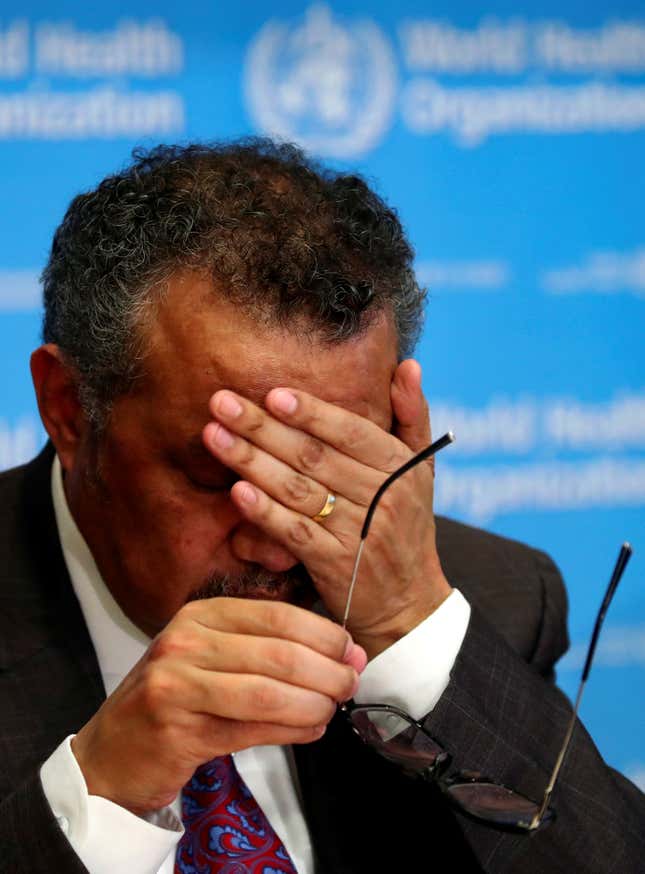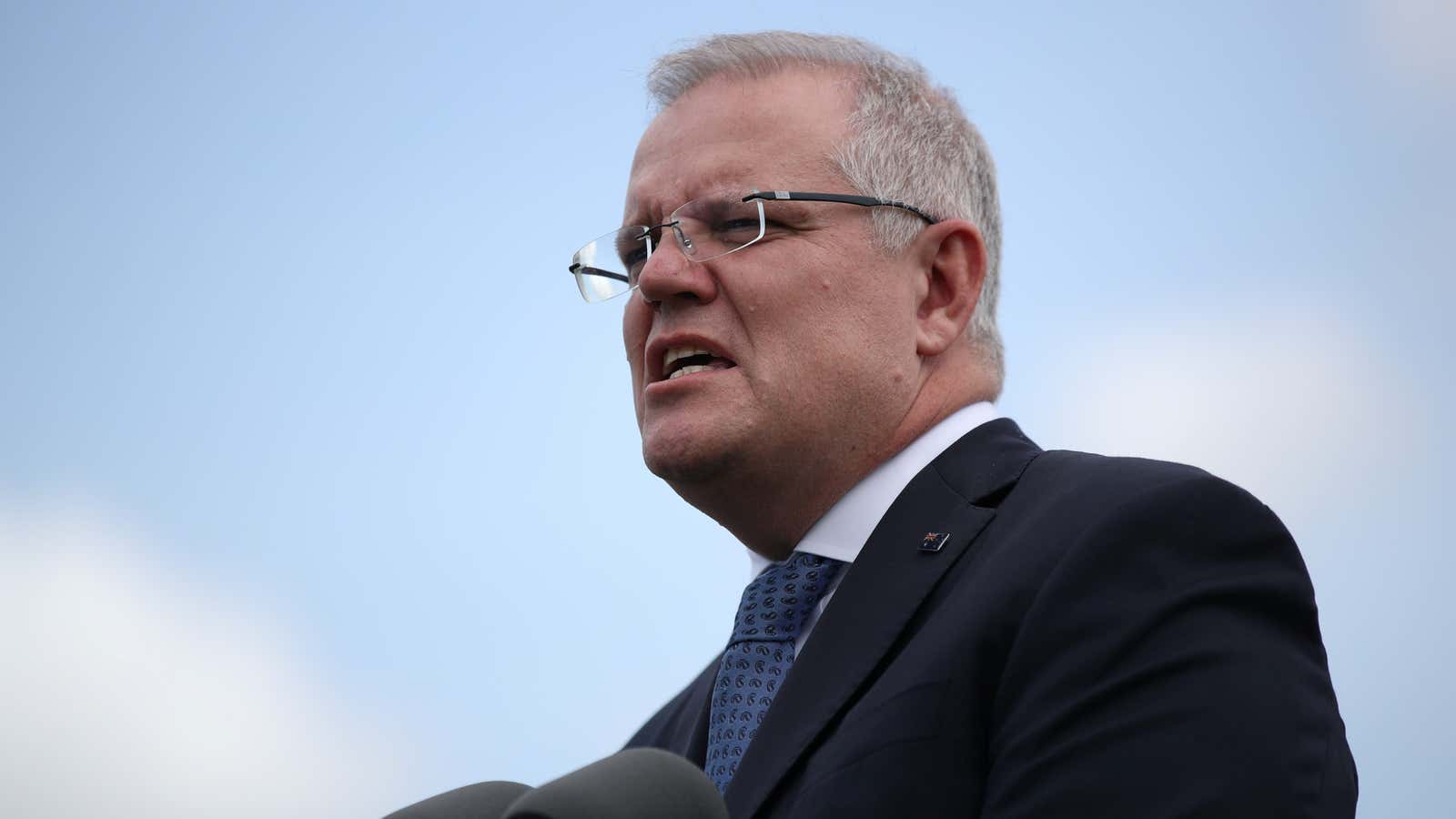The global fight against the novel coronavirus has sparked a whole lot of global infighting.
As governments everywhere look to lay and deflect blame, the two easiest targets so far seem to be China and the World Health Organization (WHO). Western leaders are increasingly lining up against China, calling for investigations into how the Chinese government allowed a local outbreak to grow into a global pandemic. The US and others have also taken aim at the WHO, the global body tasked with managing this health crisis. Australian prime minister Scott Morrison this week called for an independent global probe into Covid-19—including China’s role in its early spread and the WHO’s response.
Experts are greeting these calls for investigations with skepticism (and so are some governments). For one thing, they say, the pandemic is ongoing, and it’s too early for postmortems. They also note that there are inherent problems when sovereign governments investigate one another. The timing and the way these calls for investigations were made, they say, also point to a growing deficit of trust in international institutions and multilateral cooperation.
“It’s going nowhere”
The calls for a global review of China’s response to the virus won’t likely amount to much. To start, the countries who have called for an investigation have no authority to do so, says Adam Kamradt-Scott, an analyst at the Centre for International Security Studies at the University of Sydney. “Just as if the event was to emerge in their territory, any country would basically reject foreign intervention or criticism of its internal processes,” he said.
Evidence has emerged that Chinese authorities initially covered up the existence of the new virus. They did the same during the severe acute respiratory syndrome (SARS) epidemic in 2002, when they waited three months to notify the WHO of the outbreak, and another two months to let a WHO team into Guangdong province, where the outbreak originated. (This delay is part of the reason the WHO works to cultivate good relations with China, to ensure it continues to share health information with its teams.) An investigation might reveal more damaging information, which is why “the only kind of investigation China would let take place would be something quite toothless,” said Una Bērziņa-Čerenkova, an expert on China at the Latvian Institute of International Affairs.
China is especially unlikely to accede to calls for an investigation supported by the US, because relations between the two competing superpowers are at a low point. “Under these circumstances, a truly unbiased investigation would probably be impossible,” Bērziņa-Čerenkova said.
“Unless a broad coalition of countries from across the ideological spectrum back [Australia’s] call for an independent inquiry into the origins of the pandemic, it’s going nowhere,” wrote Graeme Smith, a researcher on pacific affairs at Australian National University, in The Conversation.
The WHO’s mechanism for investigating emergencies
The WHO has its own mechanism for assessing its response to public health emergencies—a mechanism that was negotiated and approved by its members, which include Australia, the US, and almost every other government.
In 2005, WHO member states revised the 1969 International Health Regulations (IHR), which govern the world’s response to deadly international diseases. The IHR revision gave the WHO more powers to act in the case of an emergency, including the right to independently declare a “public health emergency of international concern,” and issue non-binding recommendations to member states on how they should respond.

Member states can call for a review committee made up of experts appointed by the WHO director general to assess the organization’s response to a particular emergency. This happened after the 2009 H1N1 Influenza pandemic and the 2014 West African Ebola outbreak (pdf), for example.
Any time a major public health crisis occurs, “everybody under the sun [does] their own review,” says Rebecca Katz, director of the Center for Global Health Science and Security at Georgetown University Medical Center. That includes academic institutions, think tanks, and other UN bodies. But reviews typically occur after the crisis has slowed, not in the middle of it. And this time, the stakes appear to be higher: China is accused of covering up a deadly virus, and Australian and US officials believe—rightfully or not—that the WHO is under Beijing’s influence.
This is not the first time the WHO has weathered accusations that its decisions were not purely motivated by public health concerns. During H1N1, critics accused the WHO of declaring the outbreak a “pandemic in progress” too quickly, so as to benefit pharmaceutical companies producing influenza vaccines. In their subsequent review (pdf, p. 118), experts said they found “no evidence of malfeasance,” but criticized the WHO’s response to these allegations as “passive and slow,” and said the organization was reluctant “to acknowledge any mistakes and face up to its part in fostering concerns.”
Regardless of how it plays out, Bērziņa-Čerenkova said, the recent push for a review of the global response to this ongoing emergency is a sign that “faith in [international institutions] is fading. And strong players are taking matters into their own hands.”
